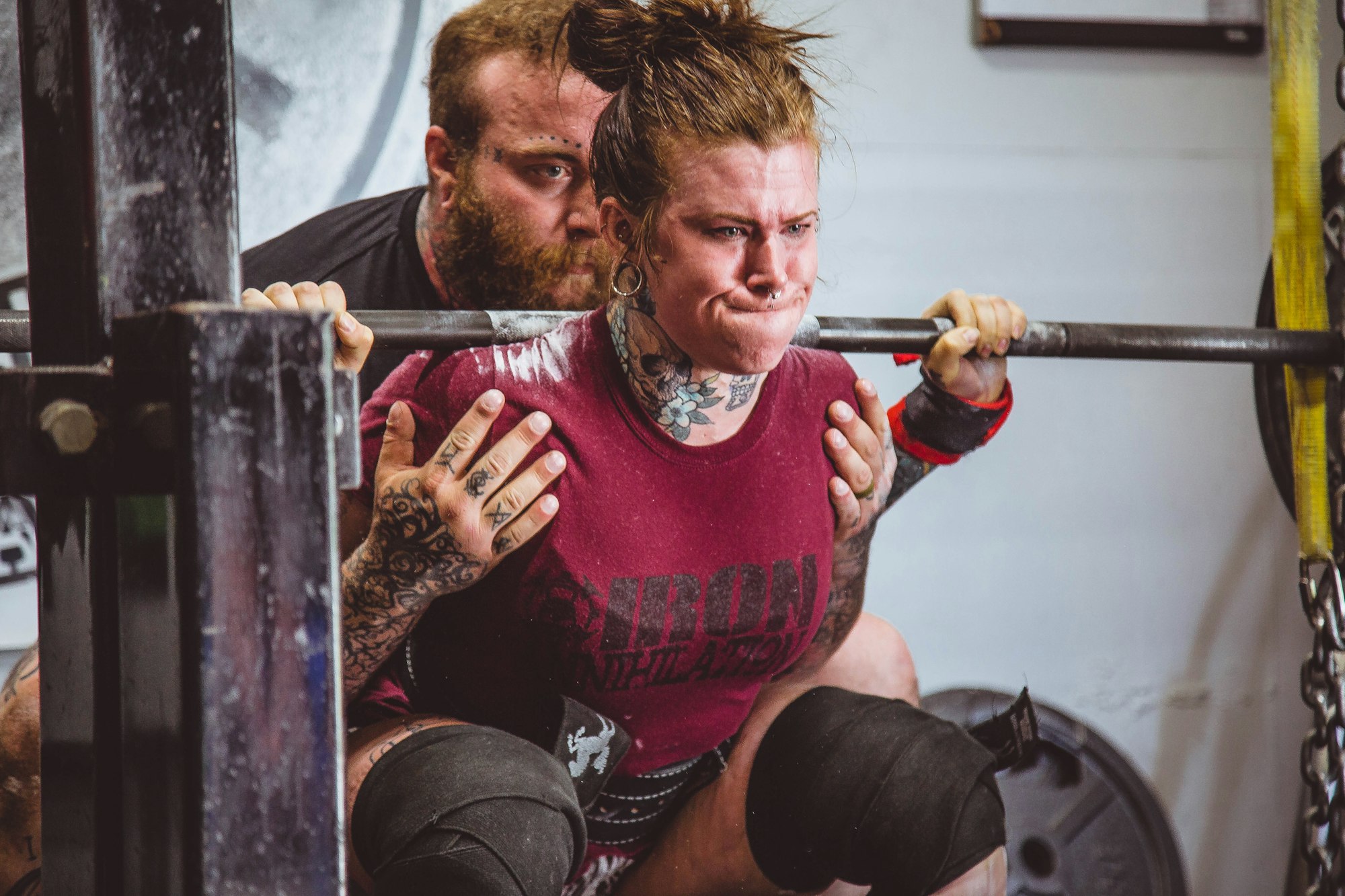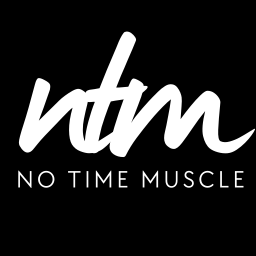Do you need carbs to build muscle?


Are carbs necessary to build muscle?
Here’s your answer: Your body can build muscle without carbohydrates. But ketogenic diets and other diets very low in carbs can slow down your gains.[1]
So carbs aren’t strictly necessary. But you’ll make better progress if you eat enough carbs.
Let’s dig into why this is.
The role of carbohydrates in muscle growth 🍙
There are no essential carbohydrates (unlike protein and fats, which are sources of essential amino acids (EAAs) and essential fatty acids (EFAs). There is therefore no minimum dose of carbohydrates.
At least, not for people who don’t exercise. ❌
But, for those who train regularly in the gym and want to maximize their rate of progress, carbohydrate intake becomes important.
Why carbs become important when you exercise
Weight lifting with sufficient intensity provides a muscle-building stimulus. It triggers muscle protein synthesis (MPS), the process whereby the body creates new muscle tissue.
Exercise performance and intensity correlate with the strength of the muscle-building stimulus. So to build as much muscle as possible, as quickly as possible, we want to make sure we trigger MPS every time we train.
If exercise performance decreases for any reason, there's a risk of impairing the strength of the muscle-building stimulus. That means less effective workouts, and a lower rate of muscle growth.
That’s where carbs come in.
Carbohydrates, exercise performance, and energy production
To exercise, we need energy.
You might remember from biology class that there are two fuel sources for the body: fat and carbohydrates.
How the body prefers to get its energy for lifting weights
In weight training, the body defaults to glycolysis to produce ATP – the form of energy responsible for muscular contraction. It’s faster and more efficient than burning fat. So we need glucose (sugar) running around the body, ready to burn when we’re training.
The most efficient way to get that sugar is, of course, by eating it. We get it from either complex (starchy), or simple (sugary) carbohydrates.
Low carbohydrate diets impair exercise performance and, therefore, limit the muscle building stimulus we can create with each workout.[1]
Conversely, performance increases with carbohydrate consumption even during exercise.[2]
Summary of why carbs are important
To build muscle as fast as possible:
• Impaired exercise performance gets in the way of this.
• So we want to support exercise performance.
• The body uses glucose (sugar) for energy in weight training.
• For optimal energy for weight training, therefore, we can fuel our bodies with carbohydrates.
• More energy while training means better performance, a stronger muscle building stimulus, and a faster rate of muscle gain.
Aside: Carbs and muscle recovery
That’s because eating carbohydrates raises blood sugar and, in response, the pancreas releases insulin.
Insulin is the hormone in charge of storing sugar, but it’s also involved in muscle growth. This is largely believed to be due to a decrease in muscle protein breakdown, rather than through increases in MPS.[3]
Reduced muscle protein breakdown (MPD) results in net higher MPS and, therefore, faster rates of muscle growth.
How many carbs do you need to eat to build muscle?
To support exercise performance and muscle recovery, and to build muscle efficiently, eat 3 - 8g per kg of body weight.[4]
Why such a large range?
The number of carbs you’ll need will be proportionate to the intensity, frequency, and duration of your training sessions.
If you train seven days a week for 90+ minutes, perform multiple sets to failure for each muscle group, and train with short rest periods, you’ll rapidly deplete muscle glycogen.
You’d need more carbs on a daily basis than someone who trains three times a week for 45 minutes with three-minute rest periods.
Carbs scale with calorie needs
This correlates with the total number of calories you’ll need to gain weight.
Here’s how to calculate this:
Calculating macronutrient needs
There are plenty of online calculators that aim to calculate your basal metabolic rate.
These just give you a ballpark figure. The only way you’ll know for sure how many calories you need is by:
- Tracking your weight week-to-week (while tracking energy intake).
- Assessing whether your weight trends up, down, or remains largely the same.
There are four steps involved in calculating your total caloric and macronutrient intakes:
2. Set protein
3. Calculate fats
4. Calculate carbs
1) Total daily calories
Start by multiplying your bodyweight in pounds by 14, or in kilograms by 30. This will give you a rough estimate of the number of calories you'll need to eat in each day to stay your current weight.
If you want to build muscle, you need to be in a caloric surplus. (Unless you’re completely new to weight training).
The body can only build muscle so quickly, and will store any extra calories as fat.
So there are no benefits to eating more than 250-500 calories per day above what you burn at rest. A surplus of this size will result in weight gain of 0.5-1.0lb per week.
Example
You’re a man who weighs 185lbs.
Multiply your weight by 14. This gives you about 2,600 calories as a ballpark figure for your total daily energy expenditure (TDEE).
With a TDEE of 2,600 calories, if you aim to gain just under a pound a week, 3,000 calories per day would be a good bet.
2) Setting protein intake
When calculating protein, 1g per pound of total body weight is enough for almost anyone. Protein is satiating, supports muscle growth when you’re gaining weight, and muscle retention when you’re losing weight.
- For our 185lbs male, this would be 185g per day.
- Protein has 4 calories per gram, so that’d be 740 calories from protein.
- This leaves you with 2,260 calories per day from fats and carbs.
3) Calculating fats
A reasonable rule is to take 40-60% of these remaining calories from fats, and the rest from carbs, depending on preference, tolerance, and training needs.
The leaner and fitter you are, the more you’ll probably benefit from having carbs on the higher end of that range. That’s thanks to higher insulin sensitivity.
Let’s assume our example man who weighs 185lbs is reasonably fit, lean, and active. He’ll set fats on the lower end of the scale, at 40% of remaining calories. Carbs at 60%.
That would like like this:
- Total calories: 3,000kcal
- Protein: 1g/lb BW = 185g = 740 calories
- Fats: 40% of remaining energy balance = 912 calories
- There are 9 calories per gram of fat. 904 ÷ 9 = 100g of fat per day.
4) Calculating carbs
As we’ve discussed, there are no essential carbs, so we can safely calculate these last.
Those with higher carbohydrate demands don’t have to stick to the 40-60% of the remaining energy balance scale, but these tend to be serious athletes.
Everyone else can safely use the 40-60% scale according to preference. At the end of the day, whether you gain or lose weight is just an energy equation.
- Carbs: 60% of remaining energy balance = 1,356 calories = 339g of carbs per day (4 calories per gram)
The final plan
So our moderately active, fit 185lb male, who wants to build muscle, would need:
- Total calories: 3,000kcal
- Protein: 185g (740kcal)
- Fats: 100g (900kcal)
- Carbs: 340g (1,360kcal)
Is protein or carbohydrate more important if I want to build muscle?
Protein is more important than carbohydrate when it comes to building muscle.
That’s because protein breaks down into the essential building blocks we need to build more muscle tissue: amino acids.
While carbohydrates support energy production and exercise performance, which is necessary for maximizing the muscle building stimulus, carbs themselves are not a necessary part of the muscle building process. They just support it indirectly.
That said, a calorie surplus (eating more energy than you burn each day) is just as important as overall protein intake for anyone not a beginner to weight training.
How much protein do you need?
One gram of protein per pound of body weight (1.6-2.2g per kg) is enough for pretty much anyone.
In fact, this is potentially on the high side. Especially when in a calorie surplus.
While in a calorie surplus , you actually need less protein than when you’re dieting.
Since there’s little-to-no risk of muscle breakdown, you don’t need to ensure an excess of amino acids in the bloodstream at all times to protect against muscle loss.
Protein timing is less important than overall intake, so just make sure you’re eating enough.
The bottom line for muscle growth
Want to build more muscle? Here’s the bottom line:
- Train with intensity to trigger muscle protein synthesis (MPS).
- Chase progressive overload.
- Eat in a calorie surplus so your weight is increasing each week.
- Eat enough protein that your body has the building blocks it needs to build new muscle tissue.
Carbohydrates aren’t a necessity, but they support exercise performance and therefore the strength of the muscle building stimulus we can create with each workout. Maximizing that stimulus, plus our rate of recovery, is essential to ensure:
- We’re getting the most out of each workout.
- We can recover fast enough to hit each muscle group (and trigger MPS) as frequently as possible.
This minimizes “downtime”, where our muscles aren’t growing. Such downtime occurs when we either train muscle groups too infrequently, or when we create too weak of a muscle building stimulus with the workout (or don’t trigger one at all).
Trigger muscle protein synthesis, recover (supercompensate), and hit the muscle again. The more times you can repeat this cycle in a given time period (e.g. a year), the more that muscle group will grow.
Want to dig deeper? Check out these 12 muscle building fundamentals.

References
- [1] Murray B, Rosenbloom C. Fundamentals of glycogen metabolism for coaches and athletes. Nutr Rev. Apr 2018;76(4):243–59. doi:10.1093/nutrit/nuy001
- [2] Jeukendrup A. A step towards personalized sports nutrition: carbohydrate intake during exercise. Sports Med. May 2014;44 (Suppl 1): S25–33. doi:10.1007/s40279-014-0148-z
- [3] Schoenfeld, Brad. Science and Development of Muscle Hypertrophy (p. 20). Human Kinetics. Kindle Edition.
- [4] Aragon, Alan. Flexible Dieting (p. 513). Victory Belt Publishing. Kindle Edition.

